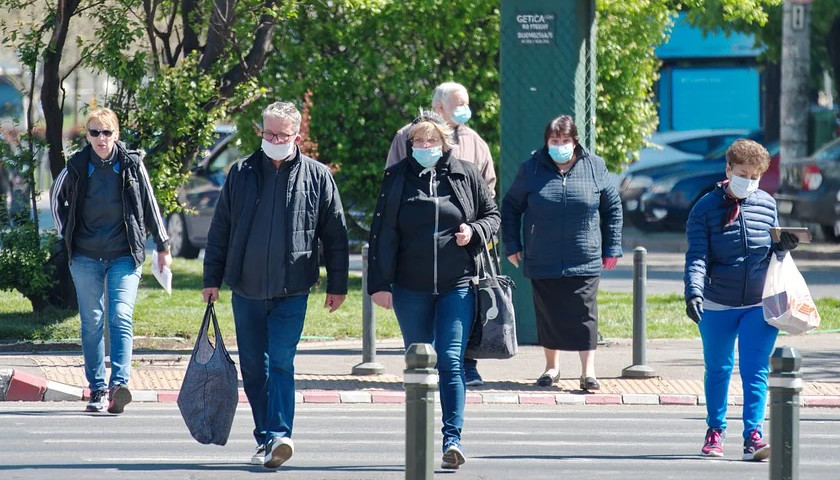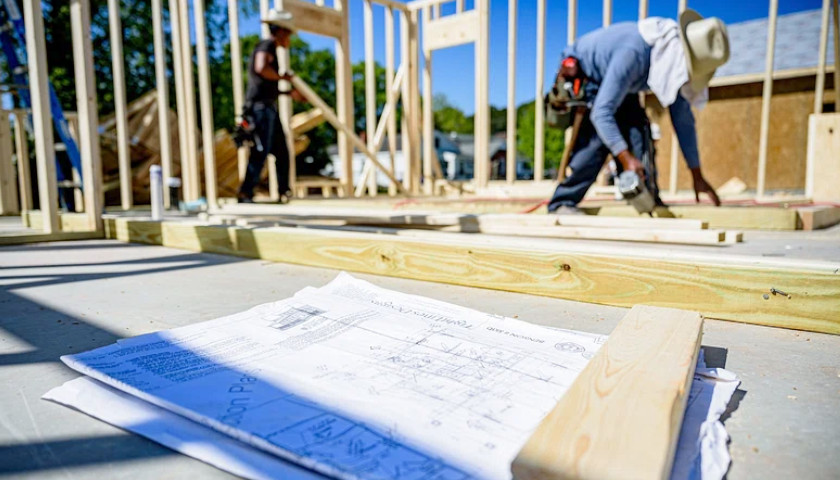More than 500 complaints about mask compliance were made over the weekend on a new hotline and online submission form meant to encourage in Cuyahoga County. A week ago, Governor Mike DeWine mandated face masks in the seven counties, including Cuyahoga, where the Wuhan virus infections have spiked recently.
“The surge [in new cases] is catastrophic. According to the state, we are a Red Level 3 and going in the wrong direction towards [level] 4,” said County Executive Armond Budish in a live-streamed briefing last Friday afternoon. “We have to take serious steps to stop the spread. We don’t want to shut down entirely. The economy has already been seriously damaged.”
Instead of declining, day-to-day increases in coronavirus cases rose above the state’s 21-day average last week. Ohio saw the largest rise in new cases since the pandemic hit on Friday, with 1,525. That’s more than 10 percent greater than the previous high on April 19. To date, the Ohio Department of Health reports a total of 67,995 coronavirus cases statewide. There have been 9,049 hospitalizations and 3,069 deaths.
The other “Red” counties include Butler, Franklin, Hamilton, Huron, Montgomery and Trumbull. Cuyahoga is the only county to implement a mask complaint program, according to Rachel Massoud, a policy analyst at the County Commissioners Association of Ohio.
No doubt other counties here and nationwide are monitoring the hotline’s impact.
Not a Snitch Line
“We are not creating a snitch line,” Mary Louise Madigan, the county’s director of communications, emphasized in an interview with The Ohio Star. “We are asking people to share their concerns and observations online and by phone, so that businesses and municipalities can be more aware and take an active role getting people to follow the state order.”
Despite the large number of complaints, “no individuals have been identified,” Madigan said. “We are not looking for that information.” The complaints are registered anonymously, and no identifying data is collected about people ignoring the mask order.
Instead, the public is simply reporting about masks not being worn where mandated: non-residential indoor locations, especially bars, restaurants, gyms and retail stores; outdoors where maintaining six feet of social distancing (exempting household members) isn’t possible; and while engaged in public transportation, ride-sharing or a private car service. So far, 80 percent of complaints concern area businesses.
County employees log each observation into a tracking system. Madigan described how the information is then forwarded to the appropriate agency, such as a municipal board of health or city or town government. That authority will contact the business or appropriate agency.
New Normal, Not Arrests
“The goal here is not arrests,” Budish said. Instead, he hopes the program will nudge the public into voluntary acceptance of the governor’s new normal—and quickly, to stop the virus’s spread.
The aim is somewhat paradoxical, just as the IRS code delineates filing income tax forms as “voluntary compliance.” The underlying idea is that the public will comply honestly without the government’s heavy hand—usually. Audits are used to enforce compliance, but hopefully sparingly.
Violating the governor’s order carries a potential second-degree misdemeanor charge, with up to 90 days in jail and a $750 fine. County sheriffs and local law enforcement have the authority to act. But “we hope that informing the business owner or relevant party,” Budish said, “will correct any compliance issues.”
He also noted that cities “may still adopt their own mask law. For example, Akron is considering its own ordinance primarily because it would be able to enforce civil fines instead of the state’s criminal penalties. Cleveland is in a similar position.”
Just Do It
Cuyahoga County, the state and nation are reeling from the pandemic’s human and economic impacts. A recent Bankrate and YouGov survey showed that nearly half of Americans say their incomes have decreased due to the virus. This proportion might increase significantly as government benefits run out. More than 90 percent of people who have already suffered economic disruption worry about the harm future outbreaks might bring.
“Masks reduce transmission up to 75 percent,” Budish pleaded in just-do-it mode. A second statewide shutdown might inflict permanent, long-term damage.
Cuyahoga residents may also address complaints directly to the county board of health or to local government. But to achieve maximum efficiency, Budish urged the public to utilize the hotline or online form. Health authorities need “to focus on contact tracing and testing as much as possible,” he said.
Concerns, complaints and observations may be submitted by phone at (216) 698-5050 or online.
– – –
Patrick J. McCloskey is a reporter at The Ohio Star. Send tips to [email protected].





